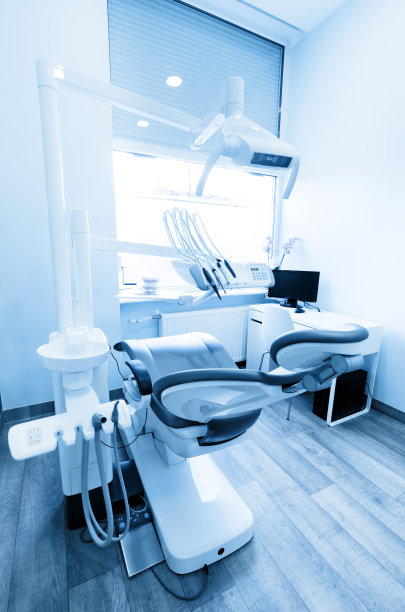Understanding Periodontal Disease and Its Impact on Oral Health and Overall Wellbeing for Lifelong Wellness and Prevention Strategies
Summary: Periodontal disease, a prevalent and often overlooked condition, significantly affects oral health and overall well-being. This article explores its impact on individuals through understanding the disease, its consequences on oral health, and the relationship to systemic conditions. We also delve into lifelong wellness by discussing prevention strategies that can help mitigate risks. By emphasizing the importance of oral hygiene and regular dental check-ups, we aim to provide insights that empower individuals to take charge of their oral health. Comprehensive care and knowledge are vital in preventing periodontal disease and maintaining a healthy lifestyle.
1. Nature of Periodontal Disease

Periodontal disease, commonly known as gum disease, encompasses a range of inflammatory conditions affecting the supporting tissues of the teeth. The two main types are gingivitis, which is a milder form, and periodontitis, a more severe manifestation that can lead to tooth loss. The disease is primarily caused by the accumulation of plaque—a sticky film of bacteria that forms on teeth. When left untreated, this plaque hardens into tartar, exacerbating the inflammatory response.
The progression of periodontal disease varies among individuals and can be influenced by factors such as genetics, smoking, and diabetes. Understanding how these factors interplay with oral health is crucial as they can significantly affect the severity of the disease. Early detection is key in preventing its advancement and preserving oral function.
Moreover, periodontal disease is often insidious, manifesting with subtle symptoms in its initial stages. This delay in recognition can lead to catastrophic outcomes for oral health, underscoring the need for regular dental visits and self-examination to catch potential issues early.
2. Impact on Oral Health
The ramifications of periodontal disease extend far beyond infected gums. Severe cases can lead to the breakdown of gum tissue and bone surrounding teeth, resulting in mobility and eventual loss of teeth. This not only impacts aesthetics but can also hinder an individual’s ability to chew and speak effectively.
Furthermore, the disease can contribute to chronic bad breath, known medically as halitosis, which impacts social interactions and self-esteem. The psychological toll of tooth loss and related oral health issues cannot be understated, as they are often linked to decreased quality of life.
Oral health and systemic health are closely interconnected; periodontal disease has been associated with various systemic diseases, including cardiovascular disease, diabetes, and respiratory disorders. The inflammation and bacteria from the gums can enter the bloodstream, potentially leading to broader health complications.
3. Connection to Overall Wellbeing
Research supports the notion that oral health is a significant determinant of overall well-being. Individuals with untreated periodontal disease may experience more frequent health complications, impacting their daily lives. Chronic inflammation stemming from periodontal issues can lead to systemic conditions that hinder physical wellness, such as heart disease.
Moreover, periodontal disease can exacerbate mental health issues like anxiety and depression. The link between oral health and mental wellness is often overlooked, yet poor oral health is frequently reported as a source of stress and embarrassment, proving that our general well-being is tied to our dental health.
Therefore, understanding and addressing periodontal disease can have a profound effect not only on oral health but also on overall life satisfaction, helping individuals maintain a holistic approach to their health. This acknowledgment reinforces the idea that regular dental care is not merely a cosmetic issue but an essential component of health management.
4. Lifelong Wellness and Prevention Strategies
Preventing periodontal disease necessitates a proactive approach anchored in education and regular dental care. Key strategies include maintaining rigorous oral hygiene by brushing twice a day and flossing daily to remove plaque before it hardens, as well as using antibacterial mouthwash to reduce bacterial buildup.
Routine dental check-ups enable professionals to monitor gum health and provide necessary cleanings, removing tartar that can contribute to disease development. These visits also allow for early intervention when signs of periodontal disease begin to manifest, thus preventing severe complications.
Beyond personal care, lifestyle changes can also have a significant impact on prevention. Quitting smoking, managing diabetes, and reducing stress can improve both oral and overall health. Empowering individuals with knowledge about the importance of periodontal health is fundamental to fostering a culture of preventive care that benefits wider communities.
Summary:
This article has highlighted the importance of understanding periodontal disease and its critical impact on both oral health and overall well-being. By addressing the nature of the disease, its effects, and essential prevention strategies, we have underscored the need for a holistic approach to wellness and health management.
Recognizing the interconnectedness of oral health and systemic health is vital for individuals aiming for lifelong wellness. Moreover, consistent preventive strategies empower individuals to take proactive measures, fostering a healthier future.
This article is compiled by Vickong Dental and the content is for reference only



